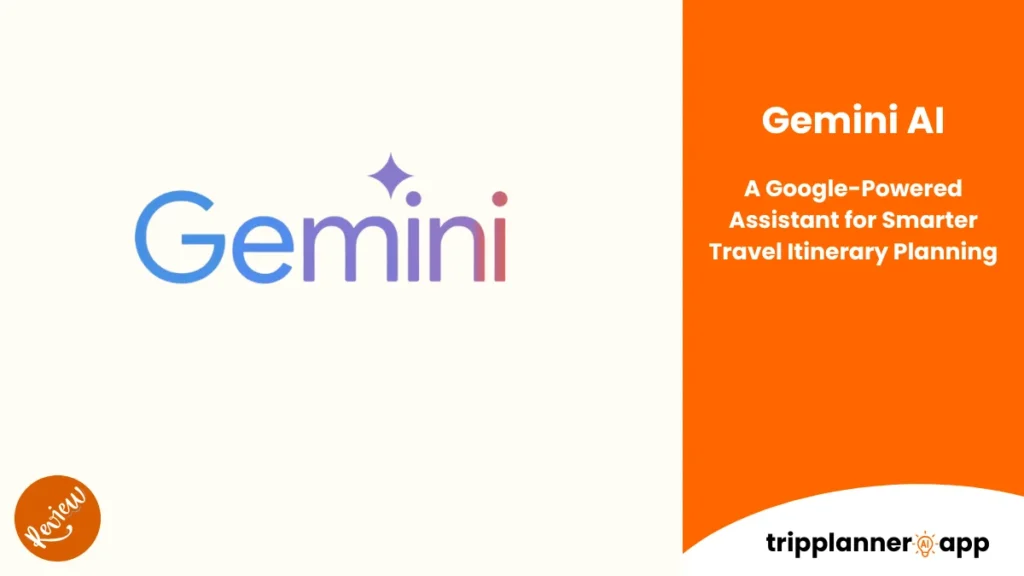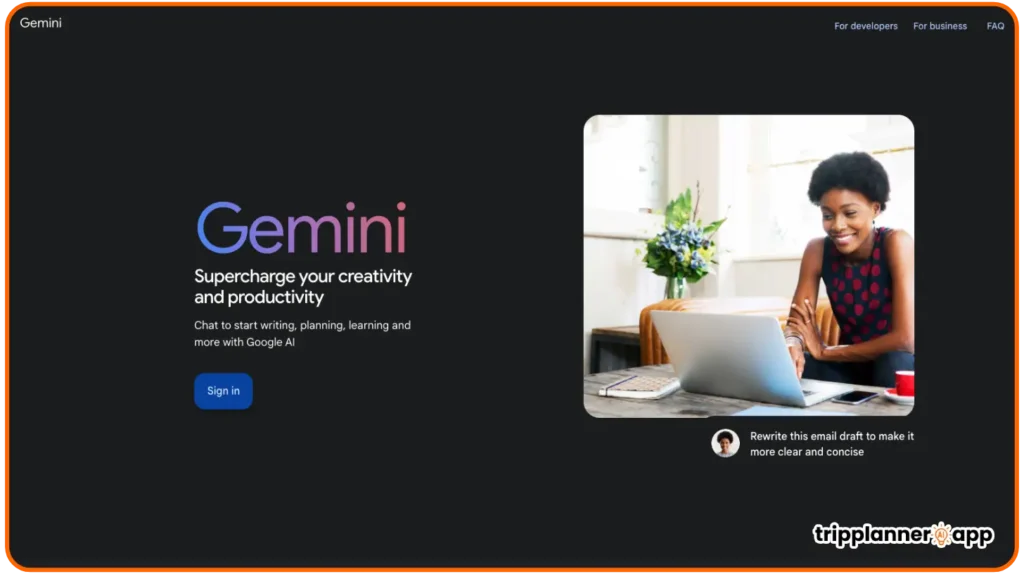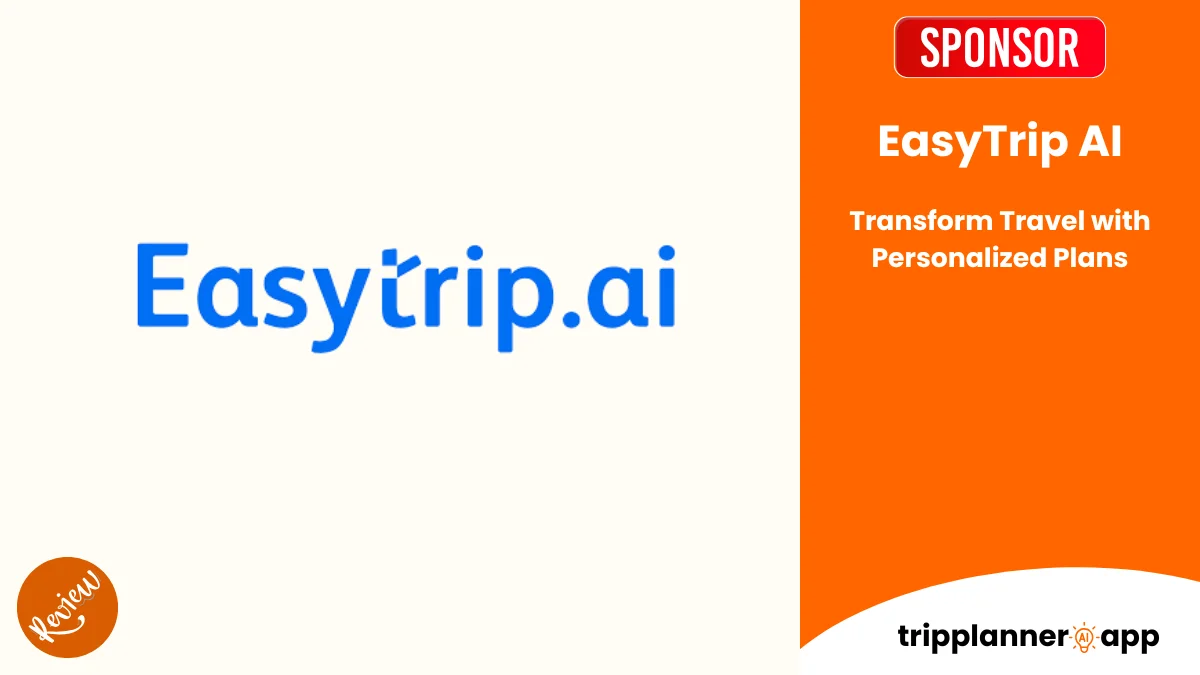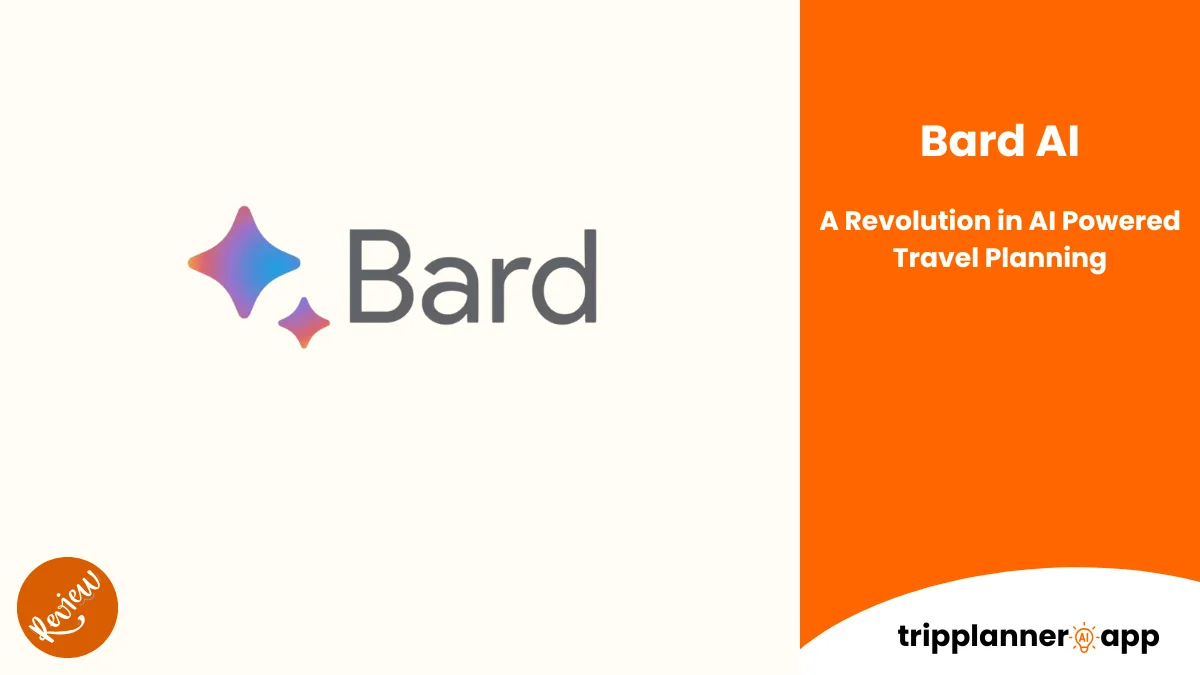Unveiled at Google I/O 2025, Google’s Gemini AI revolutionizes how we interact with technology, transforming everyday tasks into efficient experiences. By consolidating various Google applications like Maps and Calendar with advanced AI capabilities, it provides a proactive approach to personal and professional planning. Gemini AI acts as a digital guide, shaping its environment into a seamless journey of productivity and creativity.
Introduction
Google’s Gemini AI represents a leap in AI integration within personal and professional environments. It is designed to streamline interactions across various Google platforms, making it an indispensable tool in the contemporary digital age. From trip planning to managing day-to-day tasks, Gemini AI offers a versatile and adaptive user experience.
What is Gemini AI?
Google Gemini AI is a cutting-edge artificial intelligence assistant, designed to enhance user interaction across Google’s digital ecosystem. Powered by the Gemini 2.5 Pro model, it seamlessly integrates natural language processing, computer vision, and deep learning to understand user intentions and actions. This AI goes beyond a typical chatbot, offering capabilities that revolutionize digital interactions by providing context-aware assistance and real-time support within Google’s suite of services, including platforms like Maps, Calendar, and Chrome.
One of Gemini’s standout features is Gemini Live, where users can use their device’s camera and microphone to obtain immediate feedback and guidance based on their environment, turning everyday interactions into smart dialogues powered by AI-generated insights. This allows users to receive real-time responses tailored to their active experiences, whether for work, school, or leisurely activities.
An intriguing aspect of Gemini AI is its adaptability; it can generate custom quizzes, conduct profound research, and aid in creative tasks in real time. Its architecture is not rigid but rather flexible, allowing it to offer personalized recommendations that adapt to each user’s unique needs and historical interactions. This makes it a truly universal AI assistant capable of supporting diverse user profiles. As a result, it has gained a reputation as a pivotal tool in an era that demands more intelligent, adaptive, and efficient AI solutions, effectively empowering human-AI collaboration in daily life.
Why Gemini AI is Relevant for AI-Powered Trip Planning
The relevance of Gemini AI in trip planning lies in its sophisticated ability to consolidate and leverage data for personalized, efficient, and smart travel itineraries. Unlike conventional planning methods, Gemini utilizes extensive data to deliver a holistic overview of travel options, utilizing both personal details and public information for comprehensive decision-making. Its edge lies in the integration with Google’s travel services, blending user-specific data like flight details and hotel bookings with publicly available travel information to craft tailored itineraries swiftly.
As a digital aide, it sets itself apart from other AI tools, notably through features like sophisticated context recognition. This allows Gemini to process and remember complex user queries more efficiently than competitors. With real-time insights, it dynamically adjusts itineraries based on factors such as flight changes or local events, ensuring a seamless travel experience adaptable to user preferences.
Gemini’s ability to perform above its peers in experiments showcases its capacity to produce detailed, culturally relevant itineraries that can surpass traditional planning in quality and personalization. It’s this dynamism and capacity for deep contextual understanding that make Gemini a compelling choice for travelers seeking a personalized, adaptive, and streamlined planning experience.
Gemini vs. Other AI Tools (Like ChatGPT or Claude)
When comparing Gemini AI to other popular AI tools such as ChatGPT or Claude, a key distinction lies in Gemini’s integration with the Google ecosystem and its trip planning prowess. Unlike ChatGPT, which requires a subscription to access some travel planning services, Gemini offers a seamless experience by leveraging Google’s platforms at no extra cost to the user. The ability of Gemini to use tools like Google Flights and Google Hotels ensures comprehensive data handling, providing a superior user experience for travel-related tasks.
In terms of performance, Gemini AI delivers highly detailed, nuanced itineraries that are contextually aware, tapping into local insights and hidden gems that may be overlooked by other AI tools. This is due to its remarkable capacity for context acknowledgment and data aggregation from a variety of s, which enables it to generate itineraries that are rich in variety and cultural relevance. This distinction offers travelers an experience that is not only efficient but also deeply enriching and personalized to suit individual tastes and requirements.
From a technical perspective, Gemini’s multi-agent system stands out by handling various aspects of travel planning concurrently such as flight analysis and activity recommendations where other AI platforms might not match the same depth of integration and user satisfaction. In summary, Google’s Gemini provides a more comprehensive, user-oriented service compared to its rivals, driven by robust integration and advanced data-driven insights.
Core Features that Support Trip Itinerary Creation
Understanding Gemini AI’s pivotal role in trip itinerary creation starts with its core features, which harness advanced AI capabilities. Its intelligent use of natural language understanding, real-time web information access, and seamless integration with the Google workspace, positions Gemini as a front-runner in AI-driven travel planning tools. These features are foundational to customizing and optimizing travel plans, ensuring a comprehensive and personalized user experience.
Natural Language Understanding for Prompt-Based Planning
A cornerstone of Gemini AI’s capabilities is its sophisticated natural language understanding, enabling prompt-based planning with precision and sensitivity to user input. Gemini AI employs advanced NLP techniques that allow it to deftly interpret user queries, comprehending complex language structures to distill essential travel details like trip dates, chosen locations, and user preferences.
This careful parsing allows Gemini to interact with users in a manner that feels both intuitive and responsive, accommodating a wide range of conversational nuances. For instance, if a user expresses a desire to visit cultural sites in a specific city, Gemini can seamlessly process this qualitative input to propose a range of possibilities, enhancing the overall user experience by offering choices that adapt to user inclinations.
Moreover, this natural language prowess extends to the ability to tailor itineraries to user-specific needs in real time, by recognizing and acting on language cues indicative of changing preferences or sudden alterations in travel plans.
Effectively, Gemini’s NLP proficiency not only creates a user-friendly interface but elevates the entire planning process to a personalized service, addressing user needs dynamically and with greater relevance.
Access to Real-Time Web Information (via Search Integration)
The ability of Gemini AI to access real-time web information is a fundamental aspect of its trip planning prowess. This feature enables it to ground its suggestions and responses in up-to-date, current data retrieved directly from live web searches and authoritative knowledge bases.
For travel itineraries, this translates into an AI that can dynamically incorporate the latest travel advisories, flight availability, local event schedules, and accommodation pricing into its suggestions. Such instant access to live information ensures that user travel plans are not only coherent but also pragmatic and informed by the newest developments, a key factor in planning trips that hinge on timely information.
Gemini also stands out by efficiently parsing extensive web data to filter and prioritize information deemed most relevant to user queries. For example, when seeking hotel options, Gemini can rapidly produce a refined list based on the latest user reviews and current pricing trends, resulting in meticulously curated recommendations.
This seamless integration with real-time s underscores Gemini’s role as a cutting-edge planning tool, capable of delivering meticulously informed suggestions tailored directly to user interests and constraints.
Seamless Google Workspace Integration (Gmail, Maps, Calendar, Docs)
One of the major selling points of Gemini AI is its innate compatibility with Google Workspace, enabling seamless integration across essential tools such as Gmail, Maps, Calendar, and Docs. This interconnectivity allows Gemini AI to transcend basic functionality and serve as a comprehensive planner that supplements daily tasks with effortless efficiency.
For example, through Gmail integration, Gemini can autonomously extract and organize travel confirmations from emails, populating Google Calendar with relevant travel dates, flight schedules, and accommodation bookings automatically. This minimizes manual data entry and helps maintain an organized travel schedule.
When combined with Google Maps, Gemini can facilitate more informed travel routes by accessing real-time location data and providing directions, ultimately improving travel convenience. It can also automatically compile and share updated itineraries using Google Docs, ensuring an easy provision of travel plans to companions.
Gemini’s ability to sync data across Google Workspace means that all travel information is centralized and easily accessible from any device, anytime. This ensures that users benefit from a cohesive experience where all elements of planning are streamlined, enhancing user convenience and efficiency across their travel journey.
Contextual Awareness for Personalized Travel Advice
Gemini AI’s contextual awareness forms the basis of its capability to offer highly personalized travel advice, adapting to each user’s unique preferences and requirements. This feature allows Gemini to ingest varied s of information regarding user preferences, past travel history, and in-the-moment inputs to craft recommendations that resonate deeply with individual travelers.
For instance, by analyzing prior interactions and stated preferences, Gemini can suggest itineraries uniquely tailored to a user’s interests, such as recommending local eateries beloved by locals, exclusive attractions otherwise missed by traditional planning, or scenic routes safer than crowded main streets. This level of detailed contextual awareness aids in elevating user interactions from generic to distinctly personalized engagements.
Moreover, Gemini’s ability to integrate inputs like real-time weather conditions or crowd-sourced reviews enables it to adjust plans dynamically, suggesting alternative activities or routes that accommodate external circumstances without disrupting user plans. This ensures not only that the user’s travel experience is highly personalized but also adaptable to unforeseen changes.
Such nuanced adaptability underscores Gemini AI’s capability across individualized planning, providing users with contextually relevant and customized travel advice that aligns with their expectations and enhances overall satisfaction.
Read reviews of other AI trip planners and support tools to help you plan smarter.
EasyTrip AI: Transform Travel Planning with Personalized Itineraries
EasyTrip AI is reshaping the future of travel planning with its sophisticated AI-powered itinerary planning capabilities. In a world where personalized experiences are valued over standard travel packages, EasyTrip AI [...]
How Gemini AI Supports AI Trip Planners
The core features of Gemini AI demonstrate the flexibility and intelligence of its trip itinerary creation, significantly impacting AI trip planners. By integrating natural-language understanding, real-time data access, and contextual awareness, Gemini seamlessly fulfills diverse trip planning needs. Let’s explore how these features enhance the AI trip planning experience to create more efficient and user-friendly itineraries.
Generating Itineraries from Simple Prompts
Gemini AI excels in its ability to generate comprehensive itineraries from simple travel prompts, significantly simplifying the planning process for users. By utilizing its natural language capabilities, Gemini can interpret basic user prompts and turn them into detailed, day-by-day travel plans that account for user preferences, available activities, and logistical considerations.
For instance, when a user inputs a prompt like “Plan a three-day trip to Tokyo focused on culinary delights,” Gemini AI applies its extensive data res to suggest a structured itinerary that includes renowned local eateries, insightful food tours, and events that coincide with the user’s travel dates. This proactive itinerary generation not only saves users time but also enhances the travel experience by introducing suggestions that align closely with their specific interests.
Gemini’s innate ability to process simple requests and derive effective, multifaceted itineraries ensures users can embark on their travels with assuredness that plan intricacies have been comprehensively considered, providing clarity and structure to their overall travel experience.
Enhancing Existing AI Itineraries with Real-Time Insights
Enhancing existing AI-generated itineraries with real-time insights is a hallmark of Gemini AI’s trip planning capabilities. Through its integration with live data feeds, Gemini can continuously refine and improve itineraries by providing updates on critical travel factors such as airline schedules, traffic conditions, and local event disruptions.
This capability becomes invaluable when circumstances shift, such as in-flight delays or unexpected local festivities that might affect the user’s plans. Gemini can seamlessly incorporate these changes, suggesting alternative activities or accommodations that fit within the traveler’s original framework but better suit altered conditions, thereby maintaining itinerary relevance and user satisfaction.
Gemini’s dynamic updating ability derives not merely from static data sets but from actively refreshing its knowledge base in real time, ensuring all plan suggestions remain viable throughout the booking process, confirming its place as a sophisticated, responsive AI trip planning tool.
Adjusting Travel Plans Based on News, Weather, Events
Gemini AI’s facility for adjusting travel plans based on live updates from news, weather channels, and ongoing events is another key feature enhancing its trip planning competencies. Travelers can rely on Gemini AI to provide changes seamlessly adapted when circumstances necessitate cascades, such as inclement weather forecasts or road closures affecting planned routes.
For instance, if a sudden weather change threatens outdoor plans, Gemini can automatically suggest indoor activities or modify travel timelines to optimize during clear weather windows. Similarly, in the event of local news affecting a region’s accessibility or safety, Gemini’s real-time responsiveness equips users to adjust their expectations and shift itineraries to maintain comfort and enjoyment throughout their trip.
Empowered by this adaptability, users benefit from a planner that not only remains aware of potential disruptions but harnesses real-time information to convert hurdles into manageable, seamless aspects of travel planning, ensuring continued itinerary viability.
Suggesting Flights, Hotels, Restaurants, and Attractions
Gemini AI refines the selection process for flights, hotels, restaurants, and local attractions by offering tailored suggestions aligned with user preferences. By combining personal data with external travel databases, Gemini effectively processes user indications regarding budget, interests, and travel logistics to proffer recommendations that enrich the user travel experience.
For example, Gemini can provide comprehensive airline options with fare comparisons and flight durations, allowing users to make informed decisions that balance cost with convenience. Similarly, when suggesting hotels, Gemini considers factors such as location, amenities, and guest ratings to present curated choices that best match a user’s accommodations checklist.
Local dining and attraction recommendations are augmented by Gemini’s ability to access real-time reviews, upcoming events, and reservation availability, creating a rich tapestry of experiences for travelers to explore. This personalized guidance, grounded in real-time data and user preferences, renders Gemini AI an indispensable tool in the curation of well-rounded, satisfying travel itineraries.
Use Cases in AI Trip Itinerary Workflows
Building upon Gemini AI’s features, it’s evident how this tool is indispensable for creating dynamic and customized trip itineraries. Whether you’re a solo traveler or organizing a group tour, Gemini’s real-time adaptability and intuitive integration within Google services stand out. The practical applications of Gemini in AI-tripped workflows underscore its extensive use cases from solo adventuring to collaborative planning and cater to enhanced traveler satisfaction.
Solo and Group Trip Planning via Conversational Chat
In the domain of solo and group trip planning, Gemini AI stands apart with its conversational chat features that allow for meticulous itinerary customization. Through natural language interactions, users can explore solo travel ideas based on personal interests and prior travel inclinations. A solo traveler might input requests for niche experiences, like discovering local art galleries or hidden hiking trails, which Gemini can turn into personalized travel itineraries linked to real-time data feeds.
For group travel, Gemini offers collaborative capabilities through a multi-agent system wherein each member’s preferences and constraints are integrated. This ensures holistic itineraries accommodate varied interests, balancing preferences such as budget, routes, and activity types. Users benefit from real-time updates and itinerary notifications, facilitating seamless planning despite geographical differences or dynamic schedule changes.
With its AI-driven approach, Gemini not only enhances the quality and cohesion of solo and group travel experiences but also refined user experience for seamless trip planning that prioritizes personalized interactions and preferences.
Creating Custom Travel Guides or Day-by-Day Agendas
Gemini AI transcends basic planning by enabling the creation of custom travel guides and detailed day-by-day agendas tailored precisely to user needs. Employing its advanced algorithms, Gemini delves into user preferences, budget criteria, and timeline constraints to devise travel itineraries that cater individually to the traveler.
For users aiming to explore several cities on tight schedules, Gemini can construct nuanced agendas favoring efficient travel between sites of interest while minimizing downtime. Its facility to reconfigure plans during travel disruptions be it delays or cancellations ensures users remain on track without losing experiential quality or planned enjoyment.
Moreover, Gemini’s day-by-day agenda feature incorporates real-time adjustments, allowing itineraries to naturally adapt to external influences like weather or news developments, presenting users with secondary suggestions that uphold comfort and alignment to personal preferences.
This dynamic capability streamlines planning intricacies, offering bespoke travel guides that foster spontaneous pleasure within well-structured itineraries, ultimately enhancing the user travel experience with accurate and adaptive agendas.
Answering “What-if” Scenarios: Delays, Closures, Budget Changes
Handling “what-if” scenarios efficiently is part of Gemini AI’s robust architecture, enabling it to navigate uncertainties inherent in travel. Travelers often face unexpected events like budget constraints, travel delays, or venue closures that may disrupt plans; here, Gemini not only anticipates these but offers viable solutions that maintain continuity amid unforeseen changes.
Through real-time data analysis, Gemini quickly responds to an array of challenges by presenting optimal alternatives. Facing flight delays, Gemini can recommend nearby attractions to maximize waiting time. Meanwhile, for budget fluctuations, the AI can adjust planned activities to meet new fiscal constraints without compromising quality or enjoyment.
Gemini’s prowess in managing unpredictable circumstances leverages advanced AI modeling, seamlessly aligning user expectations with responsive itinerary adaptations that maintain traveler contentment and plan coherence even amidst emerging disruptions.
Exporting Plans to Google Calendar, Docs, or Gmail
To ensure seamless and efficient travel planning, Gemini AI’s capacity to export finalized trip itineraries to Google platforms such as Calendar, Docs, and Gmail is instrumental. This feature offers users a streamlined method to manage travel details, shared itineraries, and logistical requirements within systems they are already using enhancing usability and coordination.
Gemini can effortlessly extract itinerary specifics, automatically syncing them with Google Calendar to capture important dates, flight schedules, and accommodation bookings. For users seeking customized travel documents, exporting to Google Docs facilitates individual annotations, allowing additional notes or reminders to enhance plan personalization.
Moreover, for collaboration or sharing purposes, travelers can distribute itineraries via Gmail, ensuring participants remain informed on updates or changes while fostering effective communication.
This integrated exportability reflects Gemini AI’s accessibility within the Google ecosystem, offering users a cohesive travel management tool that centralizes itinerary creation, organization, and delivery with an intuitive, easy-to-use interface.
Integration with the Google Ecosystem
Gemini AI’s integration within the Google ecosystem offers a robust framework for enhancing travel arrangement workflows. By synergizing with tools like Google Flights, Maps, and Translate, it empowers users to tap into a reservoir of resources that enhance communication, logistics, and organizational competencies, making seamless trip execution a reality.
Sync with Google Flights, Maps, Translate, and Sheets
Gemini AI easily syncs with Google Flights, Maps, Translate, and Sheets, advancing its utility as a centralized travel management hub. Users can effortlessly book flights using Google Flights’ intuitive interface and seamlessly relay details such as itinerary outlines and pricing comparisons within Google Sheets for in-depth analysis and budgeting, serving as a comprehensive resource manager.
Using Google Maps, travel itineraries can automatically adjust based on real-time traffic and distance data, precisely mapping out transit durations to optimize travel routes. Integration with Google Translate transcends language barriers, providing instant translation services that enhance user communication efficacy while abroad.
Through Gemini’s capability to harness these tools effectively, users encounter an unparalleled travel planning experience encompassing functionality, accuracy, and convenience, harmonizing travel logistics with everyday familiar Google applications.
Organize Travel Documents Stored in Gmail/Drive
The proficiency of Gemini AI to organize and manage travel documents housed in Gmail or Drive represents a decisive step towards streamlined travel itinerary coordination. Within Gmail, pertinent emails encompassing confirmations, bookings, and reservations are effortlessly tagged, sorted, and integrated into central plans, reducing the hassle of managing multiple communication threads.
Centralizing documents within Google Drive allows unrestrained access to travel details, confirmations, and vital informational res from any location globally. Users can organize material by categorizing them in shared folders, providing comprehensive access to travel companions, increasing coordination, and ensuring all documents remain readily accessible and secure throughout the travel journey.
This cohesive document management integrates data consistency and access adaptability, underscoring Gemini AI’s operational fluency and enhancing user confidence when planning, executing, and sharing trip details across diverse digital platforms.
Voice-Based Planning via Android Devices and Google Assistant
Gemini AI’s voice-based planning capabilities on Android devices, leveraging Google Assistant, create an intuitive planning experience that marries convenience with technological sophistication. Travelers can harness voice activation to dictate travel preferences, seek recommendations, or modify itineraries on the go, offering a humanized interaction layer that simplifies navigation and decision-making despite the planning stage.
Voice commands facilitate dynamic itinerary adjustments and real-time information retrieval, providing seamless hands-free communication versatility. Planning elements such as reserving dining options, researching nearby attractions, or obtaining travel alerts successfully adapt to immediate user needs.
By intertwining voice recognition technology and adaptive planning capabilities, Gemini AI renders travel planning a comprehensible and easily navigable experience, fostering well-informed decisions that adapt smoothly to changing conditions.
Sharing and Collaborating on Travel Plans with Others
The competencies of Gemini AI extend into the realms of sharing and collaborative planning, fostering connectivity among users involved in co-traveling experiences. By harnessing Google’s sharing capabilities, Gemini users can transparently distribute travel plans, share itinerary updates, and solicit feedback from companions ensuring harmonious plan coherence.
Multiple users can influence itineraries by inputting varied perspectives, allowing plan evolution to suit collective preferences while maintaining the structural integrity of the original design. Participants can utilize Google Drive to house central records, manage shared documents, and engage in collaborative adjustments, reducing coordination challenges synonymous with group travel experiences.
This collaborative dynamic promise supports multifaceted traveler engagement through rich interaction, cementing Gemini AI as a versatile asset in team-driven travel planning contexts.
Pros and Limitations
Gemini AI’s integration with the Google ecosystem presents distinct advantages and certain considerations inherent to its operational capability. Inviting practicality through vast data access and seamless data integration across platforms ensures user intention aligns effortlessly with AI planning precision. However, one must acknowledge essential system constraints that may impact its comprehensive utility for varying user demographics.
Pros: Google-Backed, Access to Fresh Data, High Integration
The strengths of Gemini AI are notably tied to its backing from Google, which provides substantial operational resources and a secure foundation for development and innovation. This inherent support fosters continual improvement in AI efficiency, ensuring alignment with evolving user needs.
Gemini’s access to fresh data is a further advantage, capitalizing on Google’s extensive ecosystem to access real-time information, which translates into meticulously informed research, analysis, and rapid information retrieval tailored to dynamic user queries.
The high level of integration with Google applications enhances productivity by allowing Gemini to work seamlessly across varied interfaces, from Calendar synergies to Docs and Gmail collaboration, achieving an exceptional flow in task management and user engagement.
Limitations: May Require Google Account, Still Evolving Compared to ChatGPT
Nevertheless, certain restrictions influence Gemini’s undiscerning use. Foremost, access may require users to possess or engage a Google Account, possibly constraining functionalities for those averse to Google environments or intent on preserving system neutrality.
Moreover, compared to more established conversational models like ChatGPT, Gemini is still evolving. As a relatively recent entry in the AI field, its responses may lack the nuanced refinement observed in competitors with longer industry maturation periods.
Users should consider these facets while evaluating Gemini’s compatibility against individual expectations and sophisticated inquiry needs, awaiting improvements versatilely aligned with historical models.
Best for Google-Centric Users or Those Planning Real-Time Trips
Gemini AI serves as an optimal tool for users who routinely operate within Google-centric environments, significantly benefiting travelers planning real-time trips. This demographic gains the most value from Gemini’s proficient integration with daily-use Google applications and access to timely updates suitable for continuously adapting plans.
In summary, Gemini AI’s synergies align favorably with Google-centric users while actively supporting those navigating travel’s inherent variables, where reliable data analysis and situational planning dexterity remain unequivocally advantageous.
Tips to Use Gemini AI Effectively
Harnessing Gemini AI effectively involves understanding both its pros and limitations while utilizing strategies that maximize its functionalities. Employing thoughtful inputs with a focus on specific application areas such as prompting and integration can significantly enhance user experiences. Here’s a look into optimizing your interactions with Gemini AI for optimal productivity and travel planning efficiency.
Use Specific Prompts (Dates, Locations, Preferences)
To maximize Gemini’s capabilities, users should employ specific prompts that explicitly define requirements, constraints, and expectations. Outlining dates, locations, and user preferences in prompts increases the likelihood that Gemini will return results that align closely with user intentions.
This specificity allows Gemini to better delineate tasks, generating more informed and personalized responses. From scheduling meetings to suggesting unique travel destinations, deliberate structuring of prompts can significantly enhance result clarity and alignment with defined goals.
Combine with Google Maps and Sheets for Structure
Leveraging Google Maps and Sheets in conjunction with Gemini AI enables structured travel planning, facilitating both logistical precision and real-time data management. By using Gemini to compile travel requirements into Google Sheets, users can organize trip details like expenses, timelines, and user preferences into comprehensive, shareable layouts.
Additionally, syncing with Google Maps allows for enhanced route planning by integrating in-the-moment travel data distances, transit options, and timeframes directly into itineraries. This harmonized approach effectively consolidates real-time inputs with structured plans, benefiting strategic decision-making.
Ask for Cultural Notes, Local Warnings, or Budget Tips
By prompting Gemini AI with requests for cultural notes, local warnings, and budgeting tips, users can obtain insights imperative for a well-rounded travel experience. This enhancement, drawing largely from live databases, equips travelers with salient cultural understandings, risk considerations, and financial planning aligned accurately within foreign contexts.
Gemini can deliver exceptionally relevant advice for locale-specific considerations, empowering more informed exploration and interaction with new environments. Such inputs steer planning guidelines toward an experience enriched with cultural appreciation, satisfaction, and fiscal readiness.
Use Follow-Up Questions to Refine and Personalize Itinerary
Effective utilization of Gemini AI includes iterative interactions through follow-up questions. Building on Gemini’s initial outputs, users can refine itineraries by asking supplemental questions, requesting elaborations, or seeking additional suggestions to accommodate evolving preferences or altered circumstances.
By maintaining interactive and ongoing conversations with Gemini, travelers foster personalized plans that evolve adaptively, emphasizing continuous refinement that better reflects comprehensive priorities and real-time itinerary adjustments.
Final Thoughts
Integrating Gemini AI into your daily travel planning routine can revolutionize how tasks and trips are managed. Gemini embraces Google’s res, offering a path of least resistance through intuitive tools designed to simplify, streamline, and personalize user experiences across multiple platforms. Its detailed responses and data-driven insights pivot Gemini toward becoming an indispensable ally for those seeking adaptable, intelligent travel engagements.
For tasks that require specificity, Gemini’s NLP and real-time capabilities ensure your demands are met with the most relevant, timely information. Its capacity to interface with Google services opens doors to deeper data connections, leveraging commitment to best practices that gracefully accommodate each planning nuance.
While still evolving compared to industry stalwarts like ChatGPT, Gemini’s Google-backed assurance promises growth and scalability, particularly suited for users enmeshed within existing Google environments. For those planning spontaneous, data-hinged expeditions or requiring up-to-the-minute accuracy, Gemini stands out as an AI poised to meet and exceed expectations with adaptive control and support across all interactions.
In conclusion, Gemini AI bridges the gap between AI capabilities and user-centric service requirements, creating an ideal blend for enhanced travel itinerary integration. Its continued development promises robust contributions to avoiding pitfalls and optimizing discoveries, serving as a dynamic powerhouse within both personal and collective travel management strategies.
Still Looking for the Perfect AI Trip Planner?
Discover all the best AI-powered trip planning tools in one place. Whether you need a fast itinerary builder, a chat-based assistant, or a browser extension — we’ve got you covered!
Browse All AI Trip Planners





